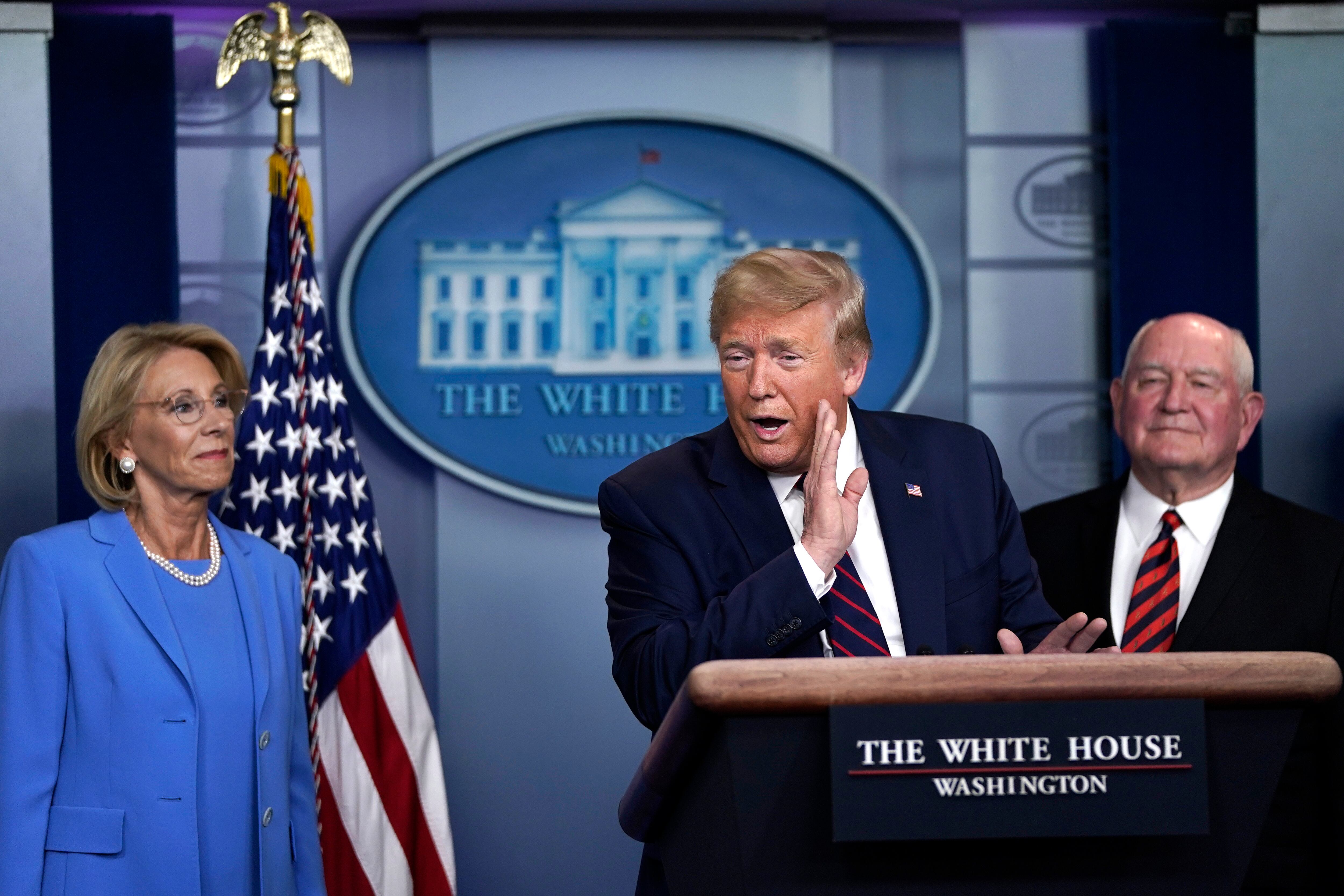Education Secretary Betsy DeVos will use $180 million in federal coronavirus relief earmarked for the hardest-hit states to create voucher-like grants for parents and to expand virtual education.
The education department will allow states to apply for a share of that money — a chance for the Trump administration to leverage the budget crunch facing states to advance its education policy priorities and a miniature echo of the Obama-era Race to Top competition.
For DeVos, those priorities include directing more public education dollars to families, rather than school districts, and creating alternatives to traditional schools and instruction.
“The current disruption to the normal model is reaffirming something I have said for years: we must rethink education to better match the realities of the 21st century,” DeVos said in a statement Monday. “This is the time for local education leaders to unleash their creativity and ingenuity.”
It’s the latest example of the department aligning its coronavirus response to the Trump administration’s political preferences, including limiting dollars going to teachers unions and undocumented immigrants.
In awarding these grants, the department says it will consider the coronavirus’ impact on a state — the stated purpose of the money, as allocated by Congress. But its criteria go far beyond that, raising the possibility that grants will end up in states that have not been hit hardest by the virus. Forty of the 100 points of the scoring rubric relate to a state’s coronavirus cases and ability to transition to remote instruction.
Democratic Rep. Rosa DeLauro, a frequent DeVos adversary, sharply criticized the move. “The Secretary is exploiting emergency relief legislation to insert Secretarial priorities not outlined in this section of the CARES Act,” DeLauro said in a statement. “At worst, the Secretary is deliberately misreading the law to conjure up purposes for these resources.”
State education agencies can apply for federal money by proposing one of three things.
The first is “microgrants” — what some would call “vouchers” — meant to give families more options for remote learning. Those grants could be used to pay for tutoring, summer programs, tuition to a private or public school online program, counseling, test prep, or textbooks, among other things. The state must allow private organizations to provide those services.
The idea is strikingly similar to education savings accounts, an idea backed by private school choice supporters like DeVos and recently adopted in Tennessee.
The second option is for states to create a statewide virtual school or another program allowing students to access classes that their regular school doesn’t offer. States can either expand an existing program or create one from scratch.
The department cites research on Florida — a state long promoted as a model by DeVos — showing that a state-wide virtual school “may produce similar outcomes at a lower overall cost.” (But the department omits mention of a broader body of research showing that virtual charter schools produce much worse test scores than traditional schools.)
The final option is nebulously defined: For a state to create “models for providing remote education not yet imagined, to ensure that every child is learning and preparing for successful careers and lives.”
The department says it expects to award grants of $5 million to $20 million for winning states — a tiny fraction of state education budgets and of the main pot of coronavirus response relief money headed to states. But during an economic downturn, states will likely be eager to get any extra money they can, and some of the ideas, like the creation of a statewide virtual school, could have a lasting impact.
The department’s regulations emphasize that students who attend private schools must be eligible to participate.





